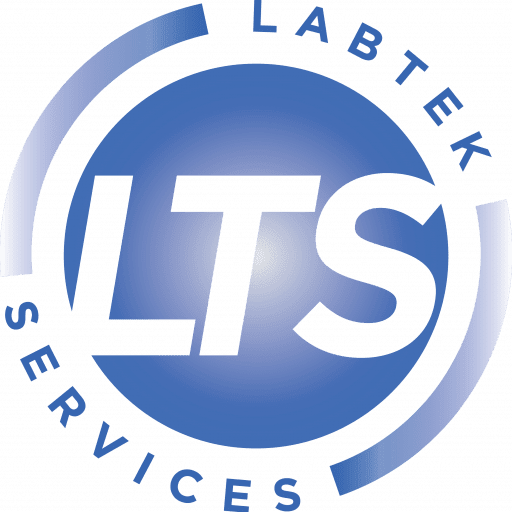
Ensure Effective Hygiene Validation with Protein Residue Swabs from Labtek Services
In industries where cleanliness isn’t just a nice-to-have but a must—like food production, pharmaceuticals, healthcare, and biotechnology—hygiene validation plays a crucial role in ensuring safe operations. Every surface, tool, and piece of equipment needs to be thoroughly cleaned to avoid cross-contamination, spoilage, or even risks to public health. One of the most effective ways to validate cleanliness is through the use of Protein Residue Swabs. These handy yet powerful tools provide quick and accurate insights into how well cleaning protocols are working by detecting protein traces on surfaces. But what exactly are these swabs, and why are they so essential in environments where hygiene is paramount?
What Are Protein Residue Swabs?
Protein residue swabs are quick testing tools that help identify leftover proteins on surfaces after cleaning and sanitizing. These proteins serve as reliable markers for organic residue, particularly in settings where biological materials are handled or processed. Unlike microbial tests that often need incubation or lab work, protein swabs provide results in just minutes. They’re designed for on-the-spot use by quality control teams or cleaning staff, and no special training is needed. This quick turnaround makes them perfect for making fast decisions and taking corrective actions, ensuring that any potential hygiene issues are addressed right away.
How Do They Work?
Most protein residue tests rely on a color change to show whether proteins are present. After you swab a surface, you pop the swab into a tube filled with a special reagent. If there are proteins on the swab, the solution will shift in color—usually from clear to purple—based on how much protein is detected. These tests are incredibly sensitive and able to pick up even tiny amounts of protein, making them perfect for checking the cleanliness of food contact surfaces, lab benches, surgical tools, and other important control points.
Why Is Protein Testing So Important?
Protein testing is crucial in industries where lapses in hygiene can lead to serious repercussions. Here’s why it should be an essential part of any cleaning validation program:
1. Regulatory Compliance
When it comes to food safety, standards like HACCP, BRCGS, and ISO 22000 emphasize the importance of closely monitoring how well cleaning processes are working. In the same vein, pharmaceutical and healthcare settings need to adhere to GMP and infection control guidelines. To ensure that cleaning methods are effective and meet audit and inspection standards, protein swabs are frequently utilized.
2. Allergen Control
In the food industry, even the tiniest traces of allergens like nuts, dairy, or gluten can lead to serious health issues. That’s where protein swabs come in handy—they act as an early-warning system to help prevent cross-contact with allergens by ensuring that cleaning between product changes is done thoroughly.
3. Infection Prevention
In places like hospitals, dental clinics, and labs, leftover protein can be a breeding ground for harmful bacteria. By detecting and removing this residual protein, we can keep these environments sterile, which helps lower the risk of infections and ensures the safety of patients.
4. Cost and Time Efficiency
In just a matter of minutes, protein residue swabs can provide results, which means they save a lot of time compared to traditional lab testing methods. This quick feedback enables cleaning teams to jump into action right away, minimizing downtime and boosting productivity.
Key Features of Protein Residue Swabs
When you’re picking a protein residue swab, there are a few key things to keep in mind:
- High sensitivity: It should be able to pick up even the tiniest amounts of protein for thorough validation.
- Ease of use: The swab and test process should be straightforward enough for anyone to handle.
- Clear results: Look for a noticeable color change that’s easy to understand.
- Fast turnaround: You want results in a quick timeframe, ideally within 1 to 10 minutes, depending on the product.
These features make protein swabs not just practical but also incredibly reliable for regular hygiene monitoring.
Choose a Trusted Partner: Labtek Services
When it comes to hygiene validation tools, the market has plenty to offer, but not many suppliers can compete with Labtek Services’ quality, reliability, and customer care. Based in the UK, Labtek Services specializes in high-quality laboratory and hygiene monitoring products. Their Protein Residue Swabs are chosen for their precision, user-friendliness, and affordability. Whether you’re running a bustling commercial kitchen, managing a cleanroom, or supervising a pharmaceutical production line, Labtek’s swabs ensure you remain compliant and confident in your hygiene practices.
Why Labtek Services?
- Expertise: With years of experience in laboratory and hygiene equipment, we truly understand what your industry needs.
- Reliable Products: Each swab is rigorously tested and carefully sourced to guarantee consistent and accurate results every time.
- Responsive Support: If you ever find yourself needing assistance—whether it’s picking the right product or figuring out how to use it—Labtek’s friendly team is always on hand to help.
- Fast Delivery: With stock based in the UK, your orders can be shipped out quickly, ensuring your operations keep running without a hitch.
From small food producers to large pharmaceutical labs, businesses all over the UK trust Labtek Services to provide effective hygiene validation solutions that really work.
Maintain the Highest Hygiene Standards with Labtek
Hygiene validation doesn’t have to be a hassle or take up too much of your time. With protein residue swabs from Labtek Services, you can easily implement a fast, reliable, and budget-friendly testing solution that guarantees your surfaces are genuinely clean.
Check out Labtek Services Ltd today to discover their complete range of hygiene monitoring tools—and take a confident step toward ensuring safer, cleaner operations.
